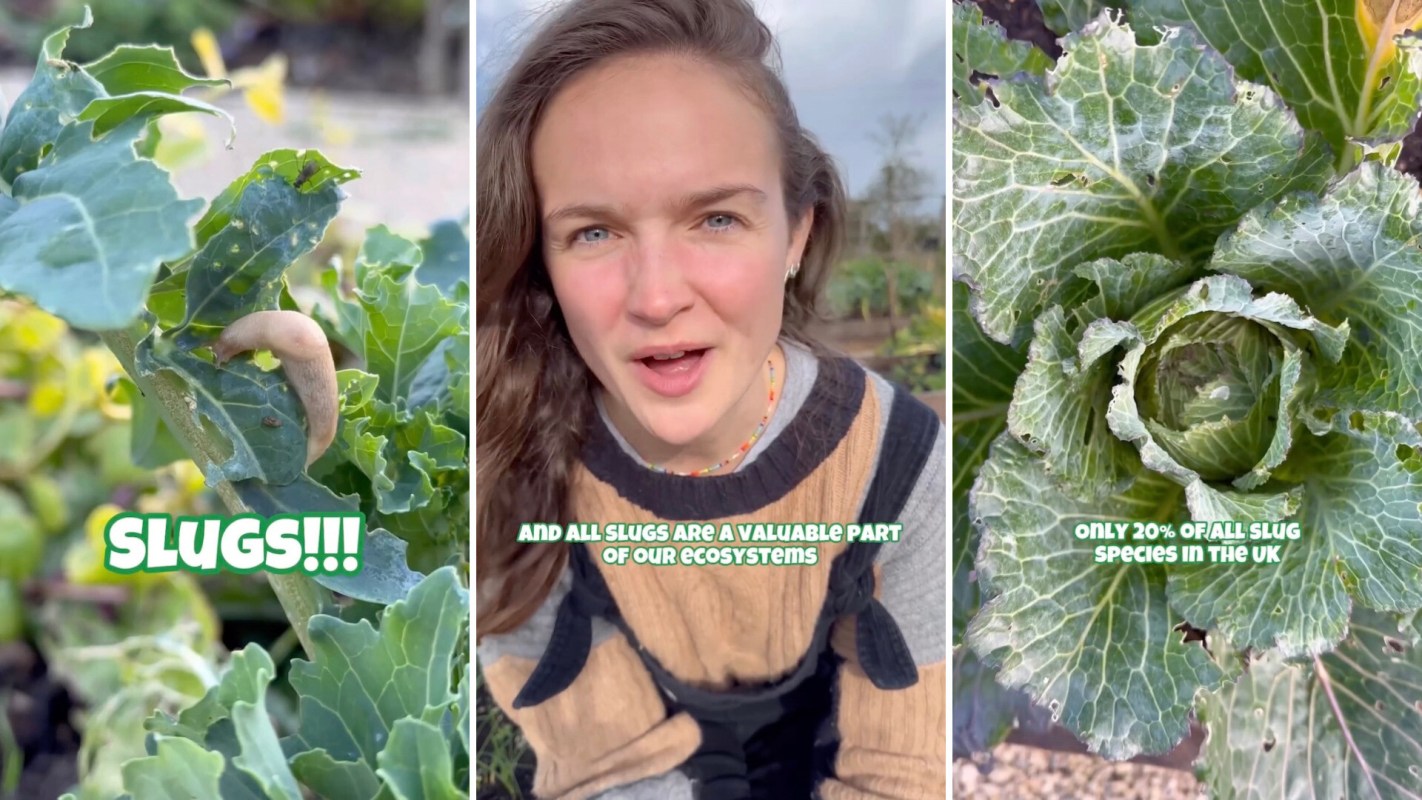Growing a garden can bring many benefits to your life, but when planning and tending one, it's also important to remember that you are part of the local ecosystem. Unfortunately, this sometimes means that critters will try to eat your plants.
Thankfully, one organic gardener has some ideas for how to keep slugs from decimating your vegetables.
The scoop
Jess Gough (@happy_smallholding) gives tips on Instagram focused on how to grow and cook with a variety of fruits and veggies. In a video on her page, she discusses slugs — little mollusks that don't have a great reputation due to their slimy nature.
In the post, she defends slugs, stating, "Although they can be a nuisance in the garden, they play an essential role in our ecosystems: they build healthy soils by recycling dead plant matter and they feed other wildlife such as hedgehogs and toads."
"It can be really annoying when you come out to find that your lettuce crop has been decimated by slugs," she says. But Jess has two tips for how to avoid this fate.
The first tip is to encourage predators to your garden by creating homes for them, such as building a pond or leaving an area overgrown.
The second tip is to grow your seedlings inside. Jess says, "Slugs love tender new growth so seedlings are always a tempting snack." Larger plants stand a better chance against a slug attack.
How it's helping
Growing your own food is a great way to save money and can be a healthy way to get outside. Gardening has been shown to improve both physical and mental health. If your crop keeps getting eaten by pests, however, you won't be able to reap all these benefits.
Utilizing these tips can help you save money on having to regrow your plants while avoiding too much disruption to your ecosystem. Besides creating a pond, these tips are completely free ways to increase your garden yield. More plants in your garden means fewer trips to the grocery store.
What everyone's saying
Comments on the post were a mix of positive feedback and helpful advice.
One commenter said, "Finally, someone who doesn't advise nematodes... My Dad always said the garden needs equal measures of good to help clear the bad, encouraging wildlife is the best way."
Nematodes are a kind of worm that sometimes eats harmful bugs, but introducing a new organism is not always advisable.
Another person chimed in, "Have you ever tried using sheep's wool as a natural deterrent? I've found it quite helpful! And it provides nitrogen as it rots down into the soil."
Join our free newsletter for easy tips to save more, waste less, and help yourself while helping the planet.









